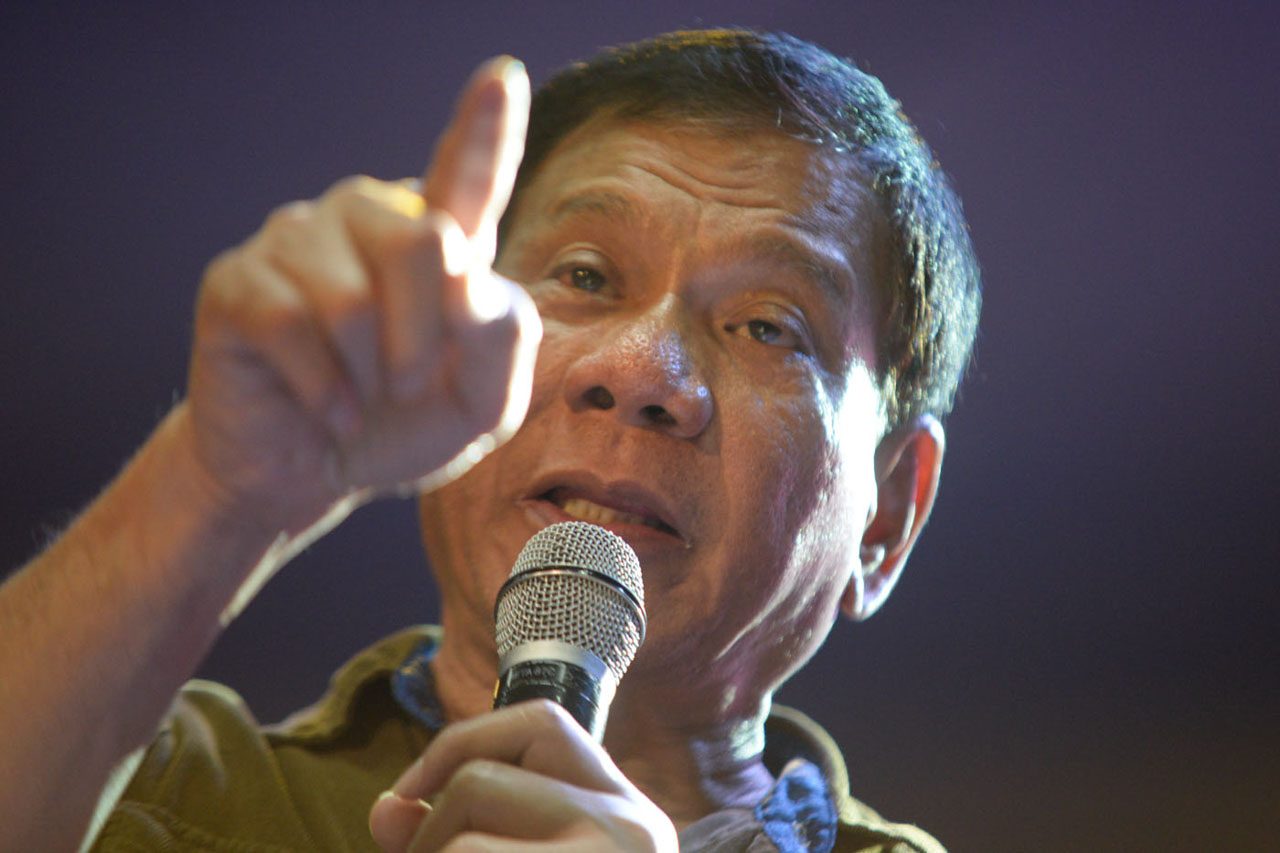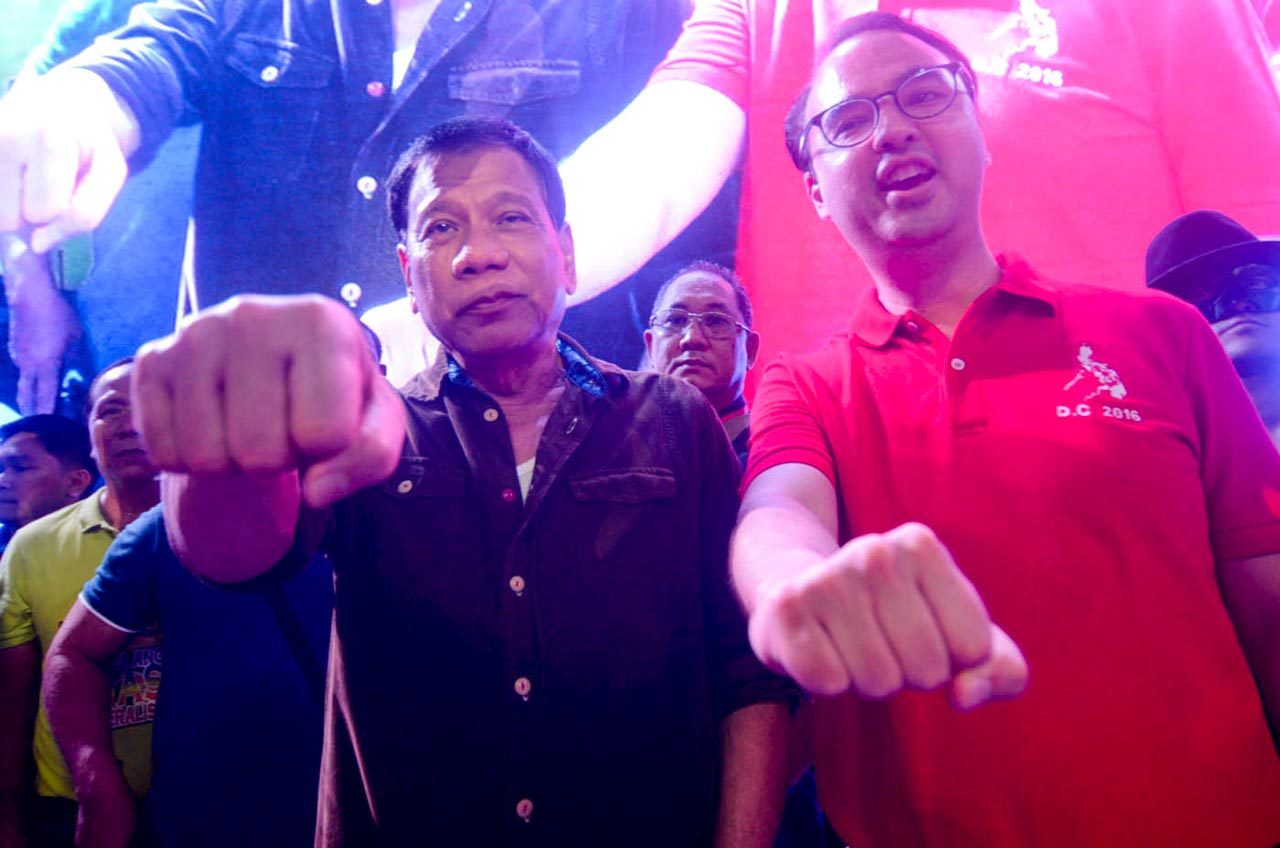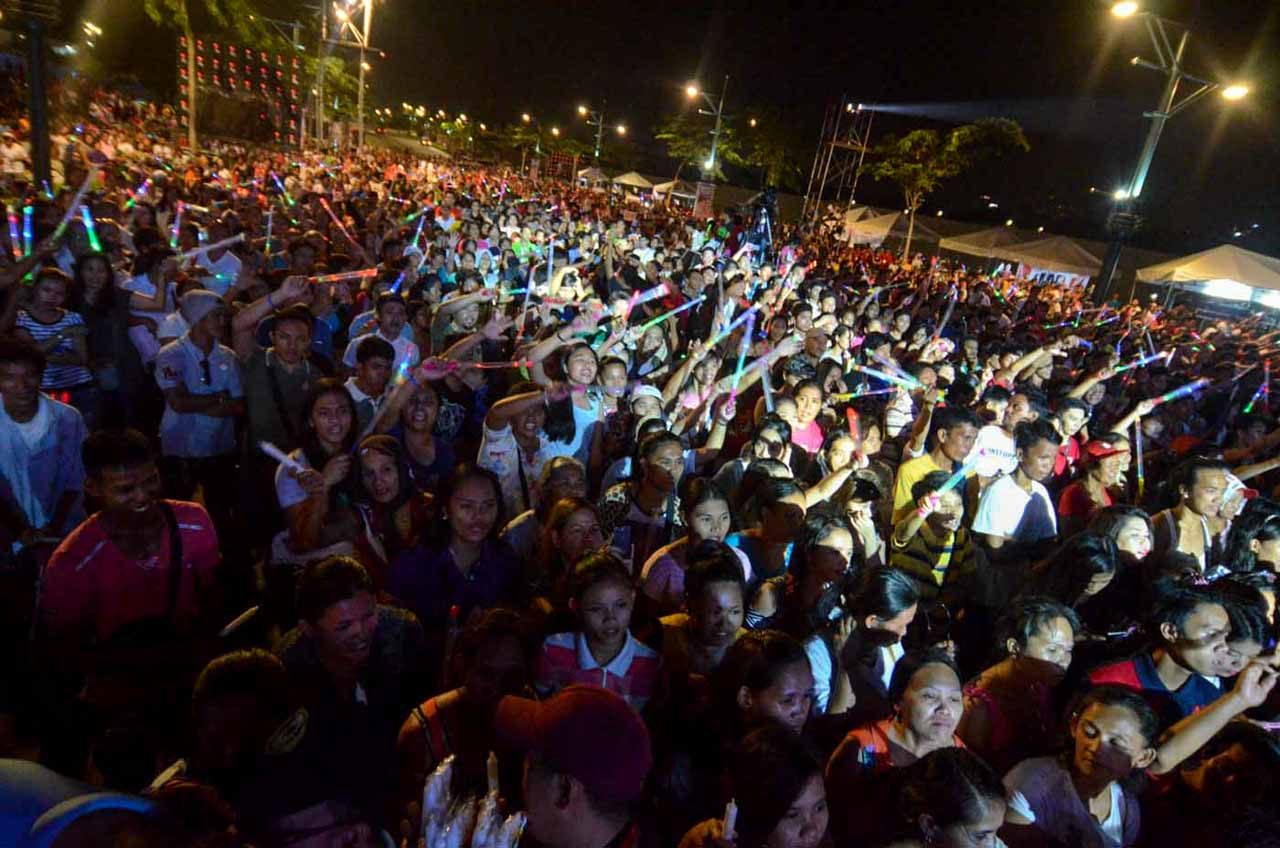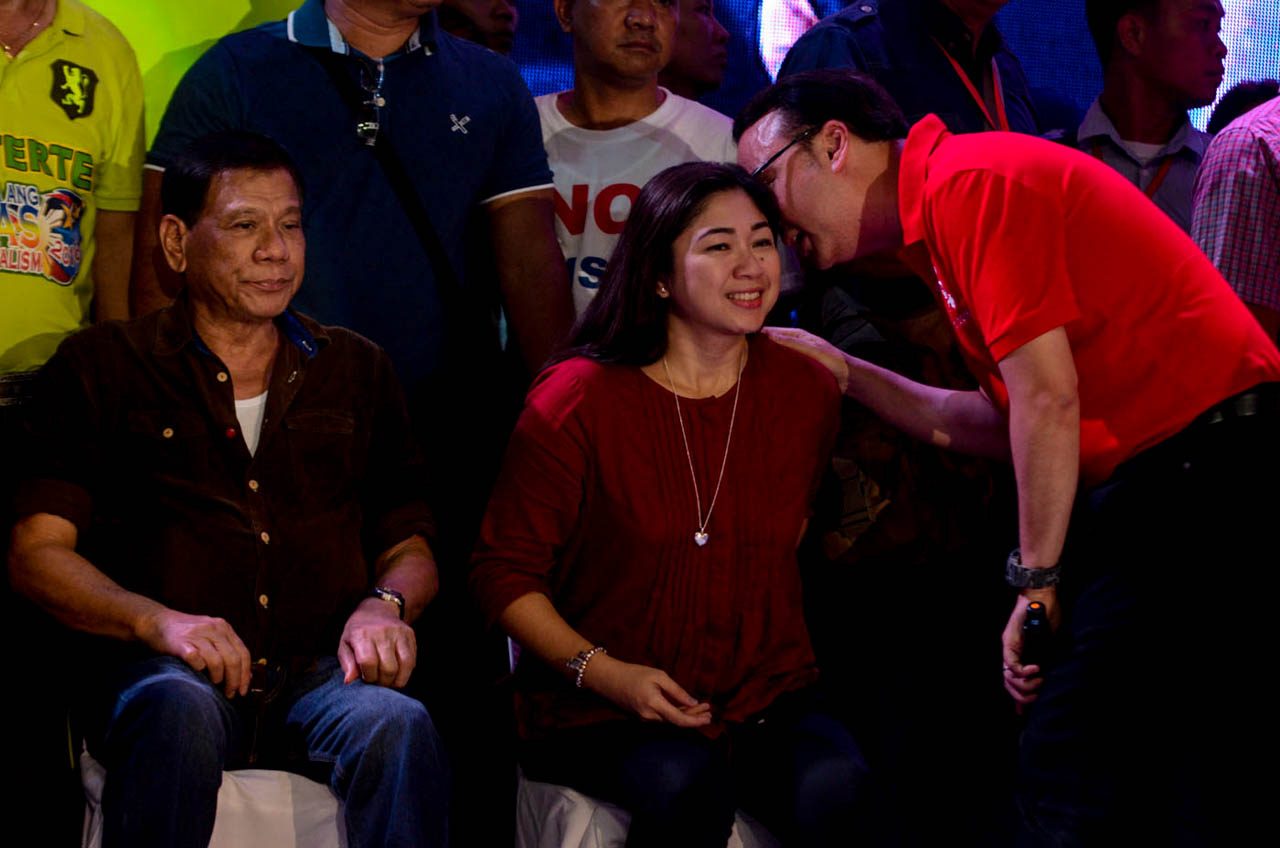SUMMARY
This is AI generated summarization, which may have errors. For context, always refer to the full article.

It was a gorgeous Sunday sunset that splashed vibrant colors against the stage, where organizers say, as many as 100,000 people waited for up to 7 hours for Davao Mayor Rody Duterte, the not-so-surprise candidate whose outspoken bluntness promises to enliven presidential campaigns in the next 5 months.
Among the early arrivals was Duterte’s pick for vice president, 45-year-old Senator Alan Peter Cayetano, whose doggedness and persistence made the partnership with Duterte possible.
“Senator Poe, Sec Mar, VP Binay can offer something better for the country,” Cayetano replied when I asked him why he believes Duterte is the right leader for the Philippines. “But they can’t offer something different. Not real change.”
Wearing a red Philippine flag collared shirt and black jeans, Cayetano found us a table behind the stage and gamely spoke into my cellphone, doing a live video conversation in the midst of the frenetic energy around the stage.

“Duterte stands out among them because he will really change things,” he emphasized. “Kumbaga nung panahon namin na Walkman pa lang, everyone’s just offering a new feature: may mic, may instant…you can change side A, side B…but Duterte is the iPhone. Duterte’s the iPad. He would change how things are done.”
(If during our time, when it was just the Walkman, everyone’s just offering a new feature: a mic, with instant…you can change side A, side B…but Duterte is the iPhone. Duterte’s the iPad. He would change how things are done.)
Cayetano’s national experience in politics – two terms as senator (which end in 2019) and the secretary-general of Nacionalista Party in 2010, fielding former senator Manny Villar for president – give some depth to what may be Duterte’s hastily organized national campaign.
In the past few months, many candidates visited Duterte in Davao, including the ruling party’s presidential bet Mar Roxas, and until recently, Senator Bongbong Marcos. He also has a substantial track record but is burdened by the legacy of his father, former president Ferdinand Marcos, who ruled the Philippines for 21 years until he was ousted in a people power revolt in 1986.
Duterte calls Ferdinand Marcos one of the Philippines’ greatest leaders and says he wants his strength of will, minus the taint of corruption. (READ: Duterte’s end game for leadership)
“Mayor Duterte is a man with a plan – he is very strategic,” said Cayetano comparing Duterte to other politicians who, he said, pale in comparison. Like asking Filipinos to stop a practice like smoking: “any other politician” would get “maybe 10%” to stop. He explained how one man can trigger massive change.
“When Mayor Duterte says stop, 50% will stop,” Cayetano continued. “The other 50% that don’t stop, he will really bring the battle to them – to their doorsteps, to their homes, to their workplaces. And when he does this, it has a ripple effect, like a domino. Dominoes can knock off many more dominoes, and it can start a chain reaction.”
It’s a leadership style that’s worked for the mayor of Davao City, who’s never lost an election since 1988. The question is, can it translate to a national stage, the country’s top post?
“I’ve studied a lot of his proposals,” said Cayetano. “This is what’s amazing. It sounds doable from a man like him, but you also keep asking yourself how. The more time you sit with him, especially in private, then he starts telling you how he’ll actually do it. You realize that it’s really that simple: that it’s really just political will.”

Sunday night’s concert, MAD – Musicians and Artists for Duterte, lasted past midnight because Duterte said his plane was late. He makes clear his personal life and his policies are intertwined, throwing out details most candidates try to hide about his wives and girlfriends. He promises transparency, and he delivers. (READ: Duterte: Yes, I’m a womanizer)
This is in stark contrast to Cayetano’s devotion to his wife Lani, the mayor of Taguig. They also took different positions on the Bangsamoro Basic Law for peace in Mindanao, with Duterte supporting it and Cayetano helping turn public opinion against it. (READ: HIGHLIGHTS: House hearing on Mamasapano clash, April 8)

“I think my advocacies are consistent with Mayor Duterte,” said Cayetano. “Iba lang yung aming paraan. (We just have different methods.) It’s like he’s the guy in the ring. I’m the guy in the court. So I think we complement each other.”
Cayetano and Duterte, a former fiscal – and both lawyers – are in their honeymoon period, but it will be interesting to watch how they work together in the coming months.
“Every time I go home after a long night with him – because he finishes his night at 1, 2 or 3 am, you know – I’m excited the next day or even that night. I text my staff and say I want this researched because Mayor wants this done. The other day he was talking about contractualization, and I haven’t heard any politician…mainstream politician…those who are really there saying, ‘I will stop it.’ But after a 5-minute discussion with Mayor Duterte, I think we found a legal formula to make this happen.”
“Legal formula,” I interrupted. “So that’s the question: in order to make change happen, he’s proposing extra-legal measures, right?” [READ: Duterte, his 6 contradictions and planned dictatorship)
“Well, extra-legal now, but Duterte can change the legal framework,” Cayetano quickly replied. “For example, telling the police not to shoot under any circumstances and telling them na pag lumaban, barilin mo (that if they resist, shoot) are two different things, but the latter is still legal.”
“I think you articulated it well,” Cayetano said. “There are a lot of things about Duterte that seem to conflict but are actually not in conflict. In one sense, the group of policemen that he works with, he trusts very much, but in another sense, he knows you have to reform the whole police organization.”
On Sunday night, Duterte spoke candidly onstage, at one point saying, “Fuck human rights.” Shamelessly unapologetic, he said file the cases against him and prove them in court. After all, he is a man with a mission.
At the very least, the Duterte-Cayetano campaign will force each Filipino voter to discuss what people actually do – like have mistresses, commit violent crimes, or yearn for strong-man rule – instead of staying on the surface of wishful thinking about societal behavioral norms.
“It just came to me that unconditionally, I would support him whether or not he gets me as his vice president,” said Cayetano the night before PDP-Laban endorsed their tandem. “He has the political will. He will change the way things are done.” – Rappler.com
Add a comment
How does this make you feel?
There are no comments yet. Add your comment to start the conversation.